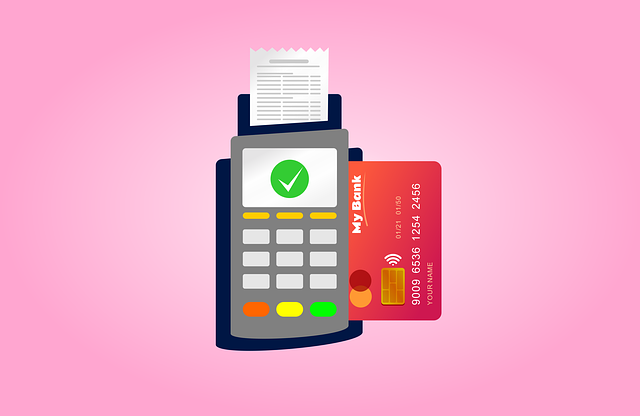invoice financing offers businesses a flexible growth capital solution by using existing invoices as collateral. It provides quicker access to funds (within days) compared to traditional loans with longer payment cycles, benefiting from shorter funding times, lower interest rates, and no impact on credit ratings. However, there are trade-offs like potential discounts if invoices default and the requirement for consistent cash flow. The application process is straightforward, involving invoice submission and business information assessment by providers. Many reputable providers offer user-friendly platforms for tracking funding progress. Before applying, businesses should evaluate industry type, client base, provider terms, and weigh pros/cons to align with growth strategies.
Invoice financing is revolutionizing business growth by offering a flexible funding solution. This alternative approach, unlike traditional loans, leverages outstanding invoices as collateral, providing immediate working capital without rigid structures or extensive collateral requirements.
This article delves into the multifaceted benefits of invoice financing, including streamlined cash flow for expansions and enhanced creditworthiness through prompt payments. We’ll also explore its advantages and drawbacks compared to conventional loans, navigate the application process, and highlight leading providers in this dynamic landscape.
- Invoice Financing Benefits for Business Growth
- – Streamlining cash flow for investments and expansions
- – Enhancing creditworthiness through timely invoice payments
Invoice Financing Benefits for Business Growth

Invoice financing benefits can significantly boost business growth by providing a flexible funding solution. Unlike traditional loans, which often require collateral and strict repayment terms, invoice financing leverages your company’s existing invoices as collateral. This means businesses can access funds faster, typically within days of invoicing a customer, rather than waiting for the payment cycle to complete. Such swift access to cash flow enables entrepreneurs to seize opportunities, invest in expansion, or cover unexpected expenses without the constraints of conventional banking.
When considering invoice financing vs loans, it’s essential to weigh the pros and cons. Pros include shorter funding times, lower interest rates, and no impact on credit ratings since it doesn’t involve a loan per se. However, there are also cons to consider, such as potential discounts on future invoices if you default, and the need for consistent cash flow to maintain the financing relationship with providers. Applying for invoice financing is generally straightforward, involving submission of invoices and relevant business information to providers who assess the risk associated with each invoice. Many reputable invoice financing providers offer user-friendly platforms, allowing businesses to track their funding progress and manage their accounts easily.
– Streamlining cash flow for investments and expansions

Invoice financing offers a unique approach to enhancing cash flow, which can be instrumental in facilitating businesses’ growth and expansion plans. By utilizing this method, companies can gain access to immediate funds by selling their outstanding invoices to specialized providers. This process provides several benefits for entrepreneurs and business owners looking to invest in the future of their ventures. Unlike traditional loans, invoice financing is an alternative that does not require collateral, making it a more flexible option. It allows businesses to focus on generating revenue rather than securing assets as guarantees.
When considering how invoice financing works, businesses can expect a straightforward process. They issue invoices to clients and then sell these invoices at a discount to invoice financing providers. These providers collect the full amount from the clients once the invoices are settled, taking into account the agreed-upon discount. This method ensures a steady cash flow for businesses, enabling them to manage day-to-day operations, fund expansions, or make strategic investments. While it offers numerous advantages, such as improved liquidity and reduced financial burden, invoice financing may not be suitable for every business. Pros and cons should be carefully evaluated before applying, considering factors like industry type, client base, and the provider’s specific terms and conditions.
– Enhancing creditworthiness through timely invoice payments

Timely invoice payments play a pivotal role in enhancing a company’s creditworthiness, a key aspect often considered by potential investors and lenders. When businesses ensure prompt settlement of invoices, it reflects their financial stability and reliability. This positive payment history can significantly improve their credit score, making them more attractive to financiers and investors. In the competitive business landscape, where access to capital is crucial for growth, invoice financing offers a unique advantage. It’s an alternative funding option that leverages outstanding invoices as collateral, providing businesses with quick cash flow without traditional loan requirements.
Compared to conventional loans, invoice financing has its own set of advantages. It provides flexible repayment terms aligned with the customer payment cycle, reducing the immediate financial burden. Moreover, it streamlines the funding process, making it a convenient option for companies seeking rapid capital infusion. However, like any financing method, it also has drawbacks; higher interest rates and potential risks associated with customer defaults. Businesses interested in exploring this route should carefully consider their cash flow management, understand the terms offered by various invoice financing providers, and assess the pros and cons to make an informed decision that aligns with their growth strategies.






